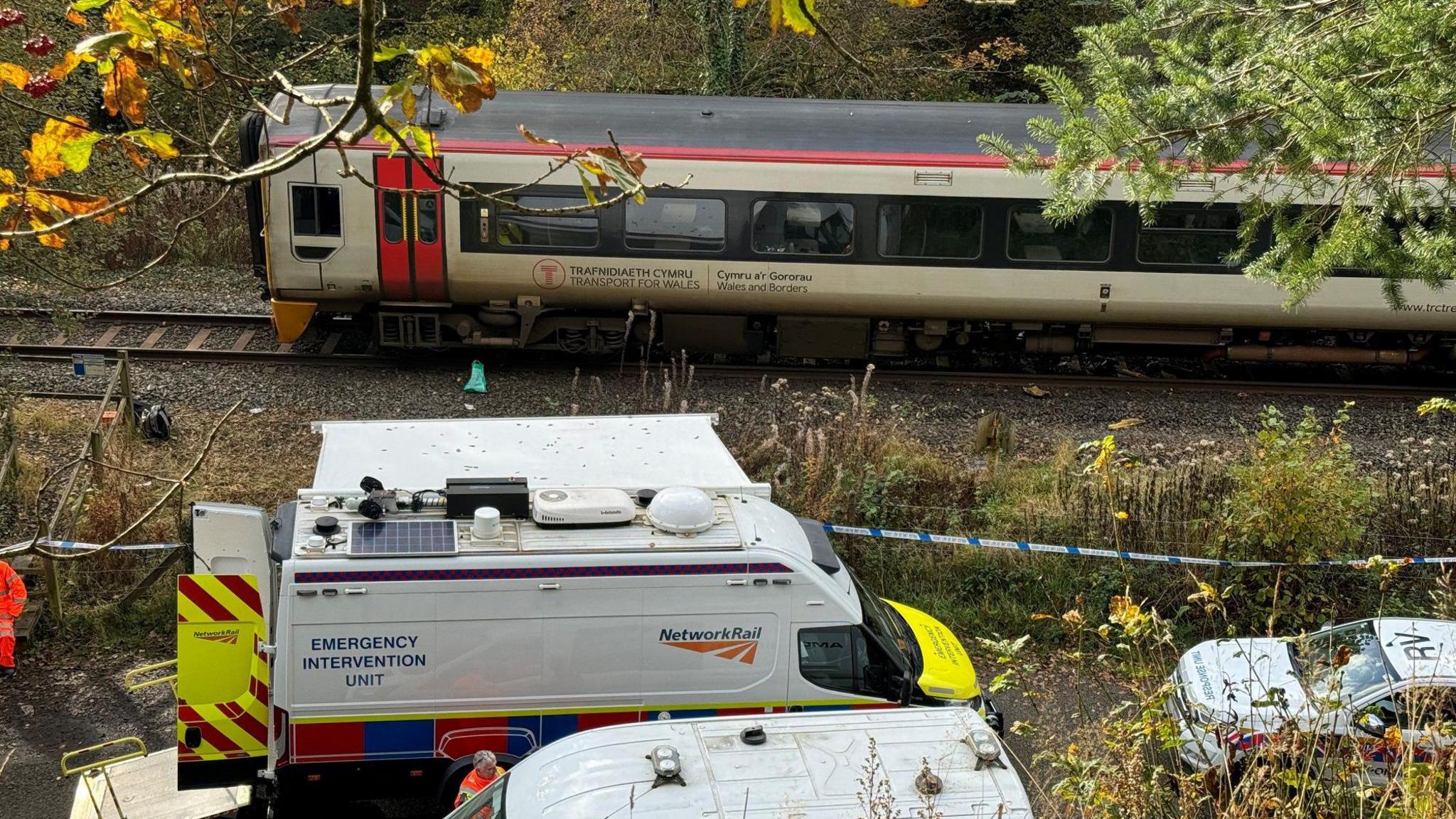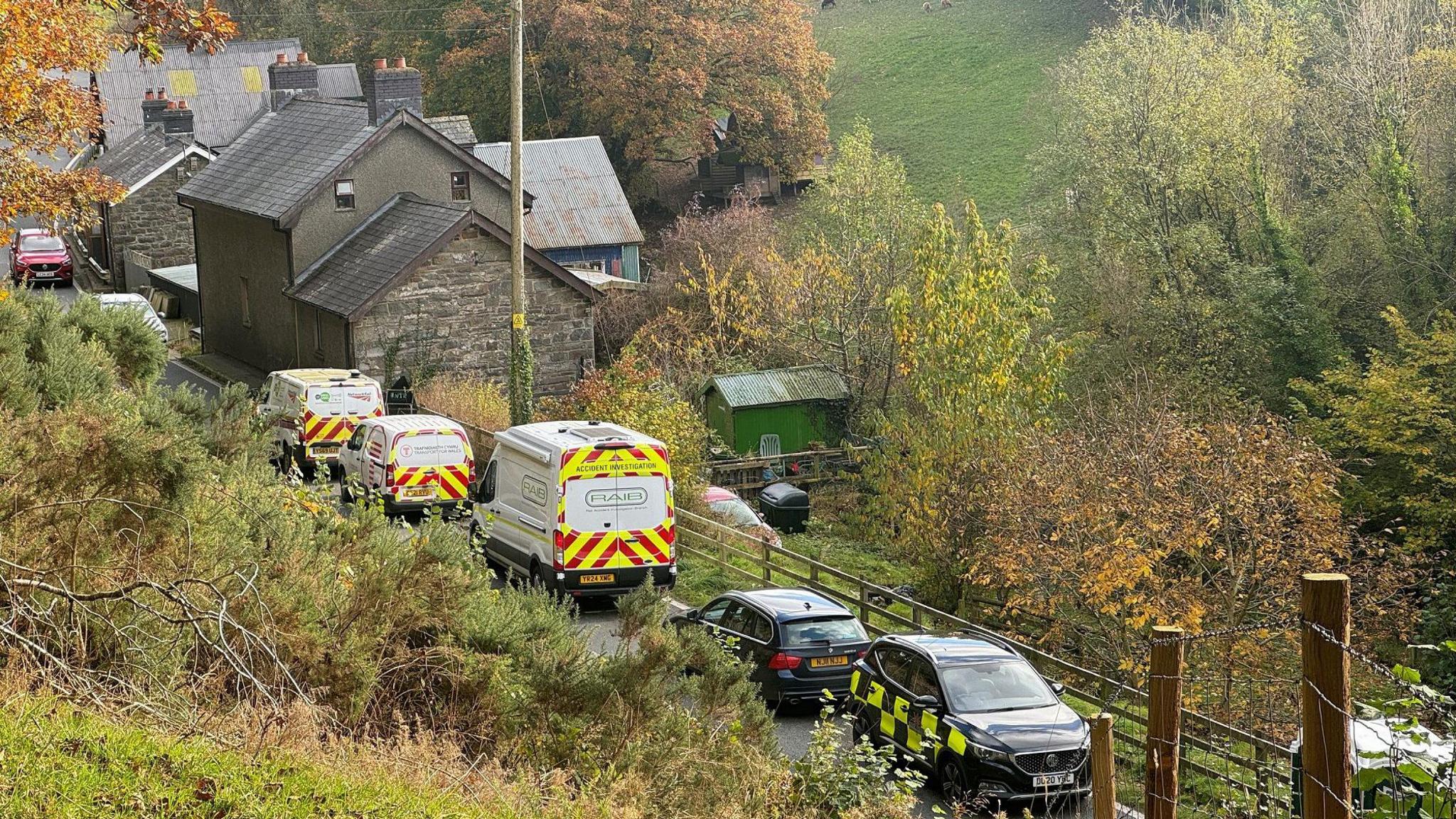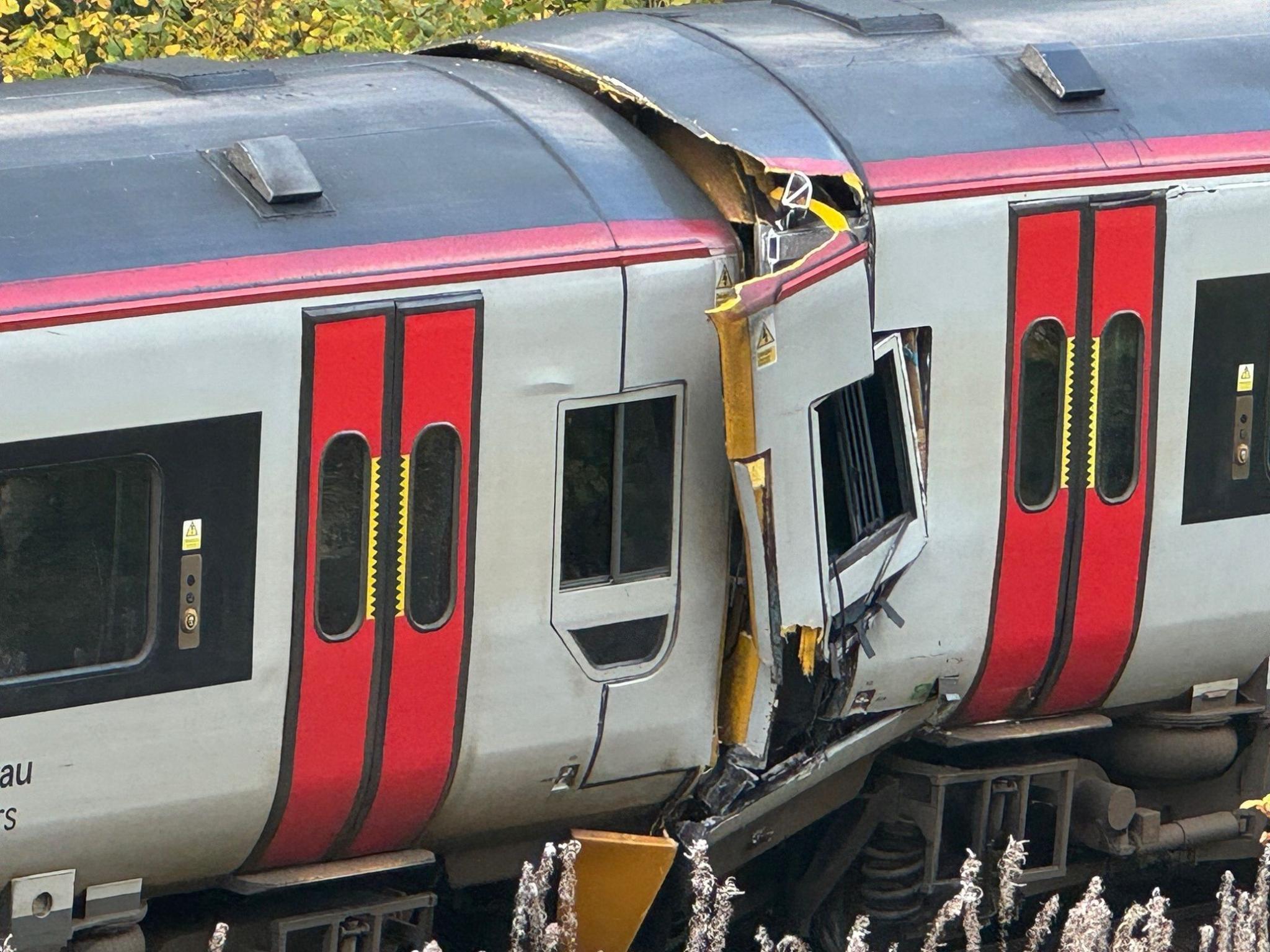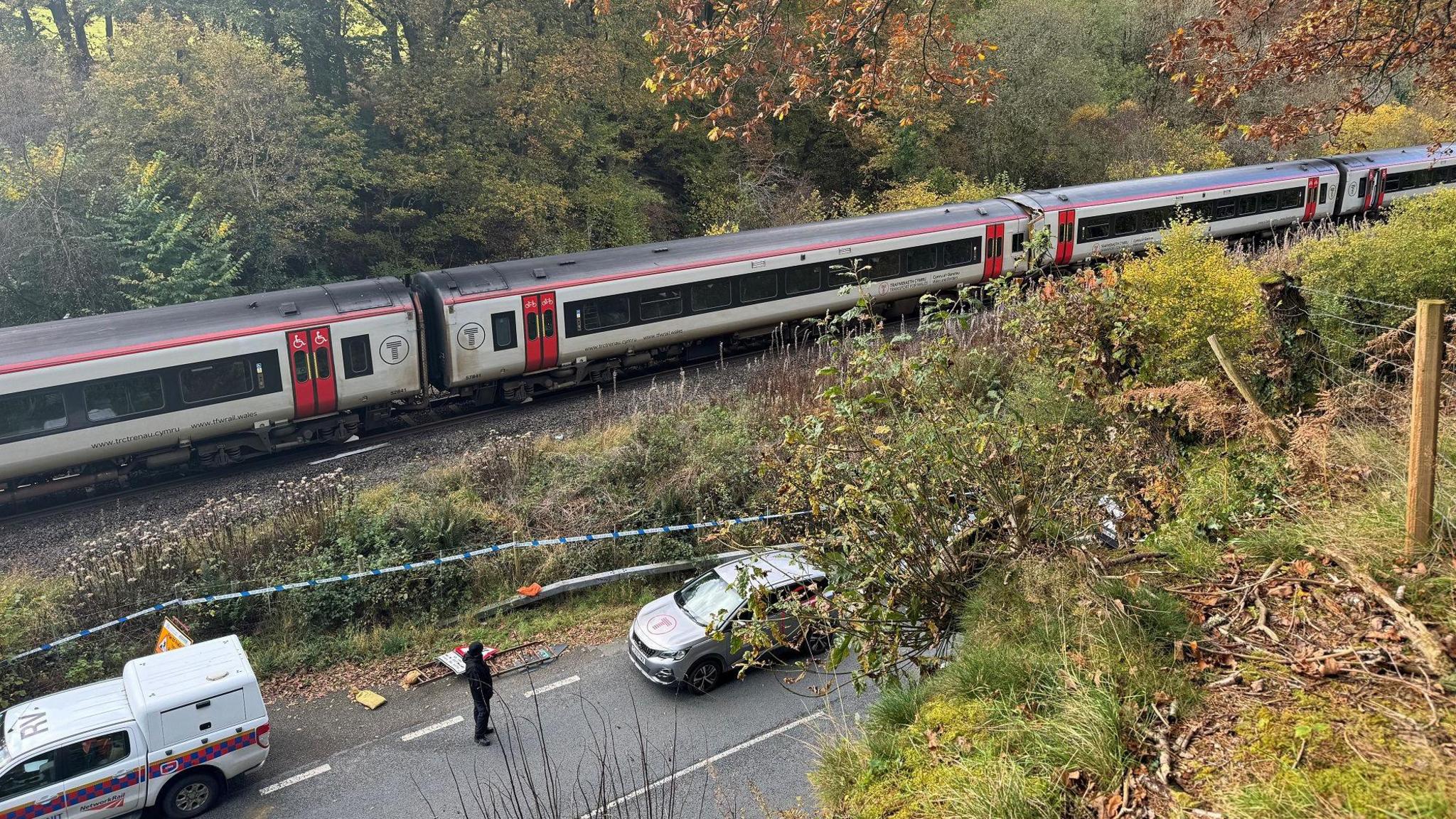Passenger who died in mid Wales train crash named

Emergency services remain at the scene of the collision on Wednesday
- Published
A man who died after the train he was travelling on collided with another train in mid Wales has been named locally as Tudor Evans.
It has also been revealed that a driver of one train was "quite badly injured" and a conductor suffered a fracture, Transport for Wales (TfW) has confirmed.
Four people were seriously injured in the crash near Llanbrynmair, Powys, on Monday evening, and a further 11 required hospital treatment, according to the Rail Accident Investigations Branch (RAIB).
The line will be shut until at least Friday, and Network Rail said it would look at "immediate lessons" to stop any future crashes before it reopens.
What happened in the Powys train crash?
- Published22 October 2024
Witnesses describe shock at scene
- Published22 October 2024
Passenger dies and 15 hurt after two trains crash
- Published22 October 2024
Mr Evans had been travelling home on the 18:31 westbound service from Shrewsbury to Aberystwyth on Monday evening when it hit a stationary train heading from Machynlleth to Shrewsbury.
He was in his 60s and from Capel Dewi in Aberystwyth.
Paying tribute, Iestyn Leyshon said he was "extremely saddened" to hear of the death of his friend, who was travelling home from a holiday in Italy.
Mr Leyshon, from Aberystwyth, told the Newyddion S4C app, external he had known Mr Evans for about 20 years but got to know him well over the past four years through their shared passion for mountain biking.
“It pains me to think that he and his wife had just begun to travel after years of work and then this tragedy happens,” he added.
“We’ll never see him on his bike on the Elenydd [an upland area of mid Wales] again.”

RIAB inspectors near the site of Monday evening's collision
TfW's chief operating officer Jan Chaudhry-Van Der Velde also gave his sympathies to the family.
He added that a driver of one of the trains was "quite badly injured" in the crash and taken to hospital in Shrewsbury, while a conductor suffered a fracture.
Both the injured driver and conductor have received medical care and "are on the road to recovery," he said.
Mr Chaudhry-Van Der Velde did not say which of the trains the driver and the conductor were on, but confirmed the injured driver did not have time to leave the cab before the impact.
He also said the trains' "black boxes" will be retrieved so all information can be passed to the investigators to help understand the cause.
The crash happened on the Cambrian line in a rural location with a single track, close to a passing loop where trains travelling in opposite directions can pass each other.
The RAIB deployed a team of inspectors to the site of the crash and said initial evidence suggested the collision occurred at a speed of approximately 24km/h (15mph).
On initial inspection, the RAIB found that the train may have entered into wheel slide when braking.

The line between Machynlleth and Shrewsbury will remain closed until Friday 25 October
The investigation is continuing and is likely to continue for at least the next 24 hours, said Network Rail route director Nick Millington.
He described the investigation as "complex" and said he was "unable to speculate on if leaves on the tracks contributed to the crash" but control and communication systems on the trains "were being scrutinised".
Network Rail and TfW said the Cambrian line between Machynlleth and Shrewsbury will remain closed until at least the end of Friday.
They thanked the community and said the investigation will move to a recovery operation to remove the affected trains over the coming days.
A full report would take several months to be processed, said Mr Chaudhry-Van Der Velde.

It will be months before a full report will be finalised says TfW
Transport Minister Ken Skates said the Welsh government's "prime concern" is safety.
Politicians sent their thoughts to train crash victims during prime minister's questions on Wednesday.
Speaking in the House of Commons, Deputy Prime Minister Angela Rayner sent her "condolences to those affected by the train crash in Powys".
Deputy leader of the opposition Oliver Dowden echoed her comments about the crash.
A passenger on the westbound train spoke of being knocked out by the impact after hearing "emergency brakes slam on, then the screeching".
Bethan Evans, 23, was on the last leg of her journey when the collision took place.
She said the crash had flung people out of their seats into the aisle, and her belongings were also thrown in the aisle.
UK government Transport Secretary Louise Haigh said she was "incredibly sorry" to hear about the crash and safety on the railways is her "absolute priority."
She added: "We are working at pace with Transport for Wales and Network Rail to understand what happened and how we can better prevent it going forward."